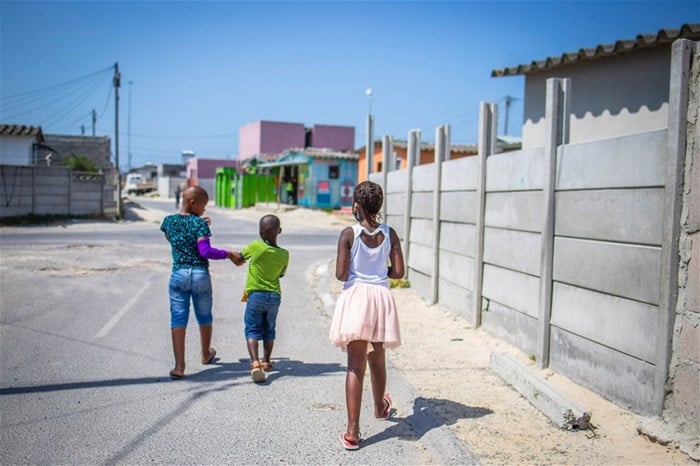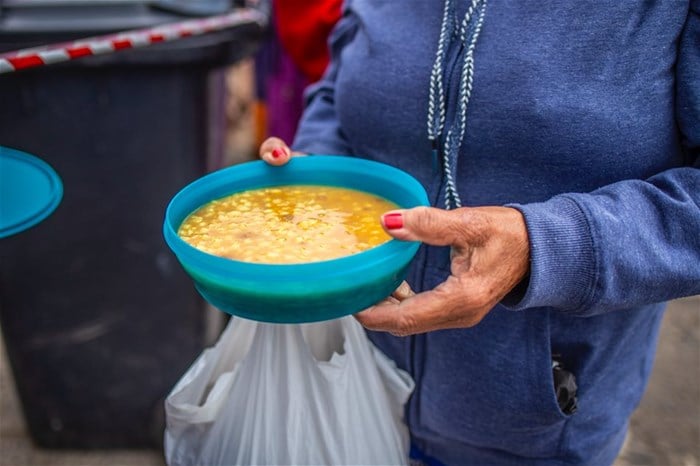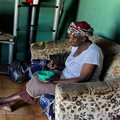We are surrounded by mounting uncertainty and unpredictability.
Food prices have skyrocketed over the past year, driven by several factors, including load shedding, the war in Ukraine, fuel price increases, a weaker rand, and mounting interest rates.
These and other factors have rapidly increased the number of people turning to credit to survive, leaving thousands of households with mounting debt. Furthermore, millions of people who are unemployed, and people depending on meagre paid jobs from day to day, must employ other coping mechanisms to survive. These include eating less food, buying cheaper foods, skipping meals, and turning to loan sharks that exploit them.
As the cold, wet winter months approach, people living in
economically vulnerable communities will struggle to meet their basic needs...
Safety nets
Social grants remain a vital safety net for the poor. In several smaller provinces, social grants, rather than salaries, are the main source of income for most households. With very little disposable income to begin with, those who are already economically vulnerable must fork out more for food, transport, clothing, electricity and other necessities.
An inevitable consequence for households with very low incomes that also face shocks such as food price increases, is that they shift from being moderately food insecure, where they face uncertainties about their ability to obtain food, to being severely food insecure – running out of food and, at worst, going several days without eating. The most vulnerable experience starvation, which has serious short-term and long-term consequences for individuals, households, and the country’s growth and development.
While annual inflation has eased to 6,8% for April, food prices remain sky high, easing only to 13,9%, from 14% the previous month, leaving households struggling to survive. According to Statistics South Africa (Stats SA), maize meal prices increased by 34,7% year on year; fresh vegetables increased by 23,1%; bread and cereals with 20,8% and milk, eggs, and cheese by 14,5%.
The crippling power crisis is fuelling the cost-of-living crisis further, with no end in sight. Food manufacturers have warned that food price increases across all categories are inevitable due to low output capacity and the increased cost of mitigating against load shedding.
Food insecurity increasing
In 2019, Stats SA introduced the Food Insecurity Experience Scale (FIES) in the General Household Survey (GHS). FIES is one of the official indicators adopted by the United Nations in the context of Sustainable Development Goal 2 (SDG 2) that calls for ending hunger and achieving food for all people by 2030. In 2020, almost 23,6 % of South Africans were affected by moderate to severe food insecurity, while almost 14,9% experienced severe food insecurity. While more recent data is not yet available, these numbers would have increased considerably in the past two years, as the cost-of-living crisis deepened.
Andy du Plessis,
FoodForward SA 10 May 2023 Increasing demand for humanitarian aid
Several overlapping crises in South Africa and globally are seriously threatening our ability to improve our economy, create meaningful employment, and on several fronts, even reverse some of the gains that have been made in recent years.
As the cold, wet winter months approach, people living in economically vulnerable communities will struggle to meet their basic needs, especially food, which will lead to a rapid increase in food insecurity and malnutrition. Requests for humanitarian aid will increase and will certainly help reduce the short-term and longer-term impacts of food insecurity.
One thing is crystal clear – we are in for a rough ride in the coming months.











































